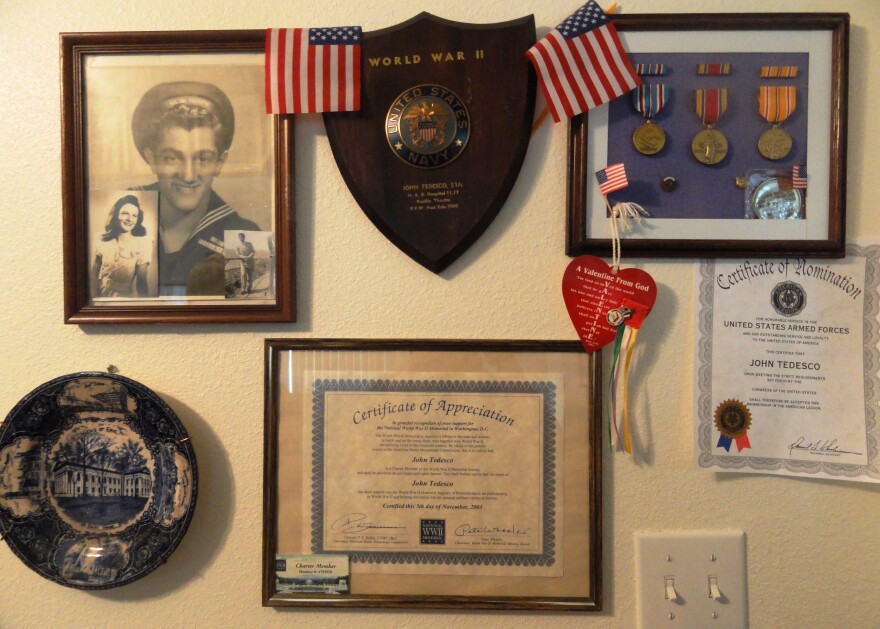More than 70 years after being exposed to mustard gas at boot camp – a World War II veteran’s claim for VA benefits is being reconsidered.
It was not until 1991 that the Department of Defense declassified information on its mustard gas experiments using U.S. soldiers and sailors in training.
Veteran John Tedesco was exposed to mustard gas in January 1944 at the Great Lakes Naval Training Station along with some of his buddies from his hometown of Erie, PA.
So, when the testing became public, Tedesco and his friends from boot camp went down to their local veterans’ office and filed VA claims.


“They were all kind of sick too,” said Tedesco, who has asthma and says he’s had breathing problems ever since he enlisted at age 17. “We had to go up to the VA and get tested. It took two days and I never heard anything from that. That was the first time we tried to get something.”
Tedesco would try again with more evidence – a copy of a letter written home about the mustard gas tests by a friend in the same company at Great Lakes. But that claim was denied too.
“I’ve been turned down every time I’ve tried. Even though when I got that letter and it said in there we were mustard gassed, they still turned me down,” Tedesco said. “So then, I said the heck with it.”
He wasn’t the only veteran to disillusioned after being exposed to mustard gas and denied benefits.
“Big promises were made to these men by the federal government decades ago,” said Caitlin Dickerson, a reporter with the NPR Investigations Desk. “And it was very clear that those promises weren’t upheld. And that there wasn’t a whole lot of time left to tell their stories.”

Dickerson spent months digging through documents and the 1991 congressional testimony when those promises were made to care for the thousands of WWII veterans exposed to mustard gas by their own government.
And that NPR investigation has refocused attention on veterans who were exposed but did not receive VA benefits.
It’s hard finding evidence because the mustard gas experiments were kept secret for almost a half century after WWII ended. But Dickerson said the vets could be helped by a ruling in 2006 that allows a veteran’s testimony to serve as evidence.
A veteran has to prove that they were injury in the military, that their disability or illness is service related and still affecting them today.

Dickerson said the VA is now handling all mustard gas claims through one office.
“These mustard gas claims are very specific because, again, they in many cases, they lack that essential evidence. And they’re more nuanced,” Dickerson said.
Several members of congress responded to the NPR series.
Florida U.S. Sen. Bill Nelson (D-FL) is one of a dozen senators who wrote the VA Secretary requesting that the VA immediately contact exposed veterans and review all pending and denied mustard gas claims.
“They didn’t have an option to say no just like the soldiers in Vietnam who were exposed to Agent Orange didn’t have an option to say no,” Nelson said. “There’s an obligation of the United States government to take care of our veterans.”
By mid-July, Tedesco had received a VA letter offering to review his denied claim. The 88-year-old retired carpenter and contractor filled out the VA form again requesting benefits for his mustard gas exposure from 71 years ago.
You can read Sen. Nelson's full letter to VA Secretary Bob McDonald here.






